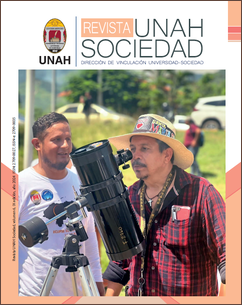Bamboo as a coastal construction material: analysis from the UNAH Architecture program
DOI:
https://doi.org/10.5377/rus.v6iIX.19474Keywords:
bamboo construction, sustainable development, tourist village, sustainable ar-chitecture, ecotourismAbstract
The hotel industry in Honduras is mainly built with concrete structures, block or brick walls and in the second instance it includes cabins built with wood. In order to reduce environmental impact and promote responsible practices, some hotels use local, renewable materials and green technologies, therefore this article highlights the potential of bamboo as a renewable and adap-table material that combines comfort with natural sensations. The objective is to investigate the technical and environmental benefits of using bamboo as a construction material in hotel deve-lopment in Honduras and provide a proposal as an alternative from the Architecture degree at the National Autonomous University of Honduras (UNAH). The main results reflect the environ-mental and structural sustainability of bamboo, as well as its ability to promote environmental conservation. Therefore, this will contribute to the diversification of tourism offers and provide arguments for the inclusion of bamboo as a construction material in Honduras, that brings sustai-nable advantages to the built environment
364
Downloads
Published
How to Cite
Issue
Section
License
Copyright (c) 2024 Nitzia Vásquez Alvarado, Melissa Lizeth Durón, Jared Isaí Centeno, Daniela Yolani Villalobo

This work is licensed under a Creative Commons Attribution 4.0 International License.




